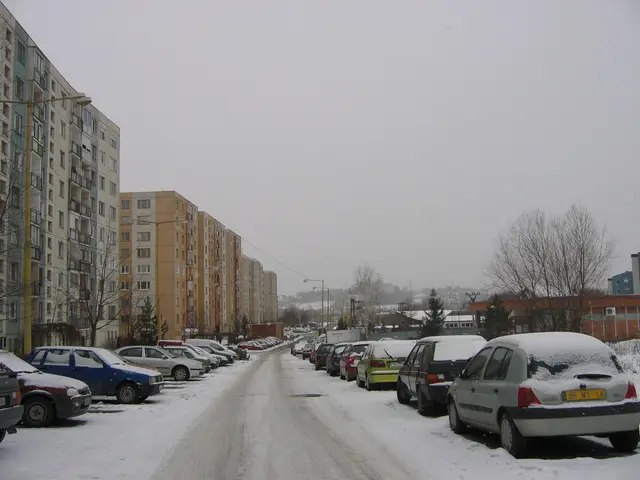"Iran's nuclear program sees revitalization under Donald Trump's second term, reversing his previous term's destruction."
Trump's struggling to handle reality as a president. His supposed brilliance in deal-making on the international stage is nothing but a myth, with one failure piling up after another. The Israeli-Palestinian conflict? He's handed that over to Israeli PM Benjamin Netanyahu in Gaza and the West Bank. The Russian-Ukrainian war? Putin's dictating terms to the U.S. Trump's unique brand of deal-making? It boils down to siding with the strongest horse in the race.
But when it comes to the Iranian nuclear issue, Trump's doing things differently. Instead of starting a war like he usually does, he's trying to patch up the mess he created during his first term. The endgame remains the same: preventing Iran from acquiring a nuclear weapon. Trump penned a letter to Iran's Supreme Leader, Ali Khamenei, who responded. We don't know what they called each other—probably something like "dear Leader" or "dear President." Negotiations started in April, with rounds of talks in Oman and Rome led by Trump's envoy, Steve Witkoff, and Iranian Foreign Minister Abbas Araghchi.
The next phase is technical negotiations focused on the nitty-gritty details—stuff like uranium enrichment limits, which is a big bone of contention. Trump wants Iran to cease domestic enrichment, but they've built up their stockpile to near-weapons-grade levels. The U.S. aims for a balance between sanctions relief and verifiable restrictions on Iran's nuclear activities, like capping enrichment at levels unusable for weapons.
As for the Rome talks, both sides made key progress on general principles for a potential deal. Iran proposed an interim agreement, but the details remain under wraps. The goal is to strike a fair, lasting, and binding agreement that ensures Iran remains non-nuclear while keeping its peaceful energy capabilities intact.
It's a delicate dance, with both sides walking on thin ice to avoid escalation. The U.S. has given itself a 60-day window for diplomacy, but if talks fail, they've threatened military action. Iran's been preparing for potential strikes, with senior commanders inspecting air defense sites near nuclear facilities.
Adding to the complexity is the stance of Russia and China, who stand united with Iran, complicating the U.S.'s efforts to isolate them diplomatically. Oman continues to mediate the talks, playing a crucial role in bridging the gap between the U.S. and Iran. It's a high-stakes game of chess, and only time will tell who'll emerge victorious.
- Putin, with his influence over the Russian-Ukrainian conflict, contrasts sharply with Trump's handling of the Israeli-Palestinian conflict, which has been delegated to Israeli PM Benjamin Netanyahu in Gaza and the West Bank.
- In a different context, Trump is adopting a more diplomatic approach with Iran's Supreme Leader, Ali Khamenei, amidst ongoing negotiations over Iran's nuclear program.
- The rebuilding of trust and persuasion is at the forefront of policy-and-legislation discussions, with technical negotiations now focusing on uranium enrichment limits, a contentious issue that poses challenges for both sides.
- As diplomacy unfolds, geopolitical dynamics remain complex, as Russia and China stand in support of Iran, potentially hampering the U.S.'s attempts to isolate them. The politics of the general news landscape make for an intricate game of policy, commitment, and perhaps, rebuilding.














































